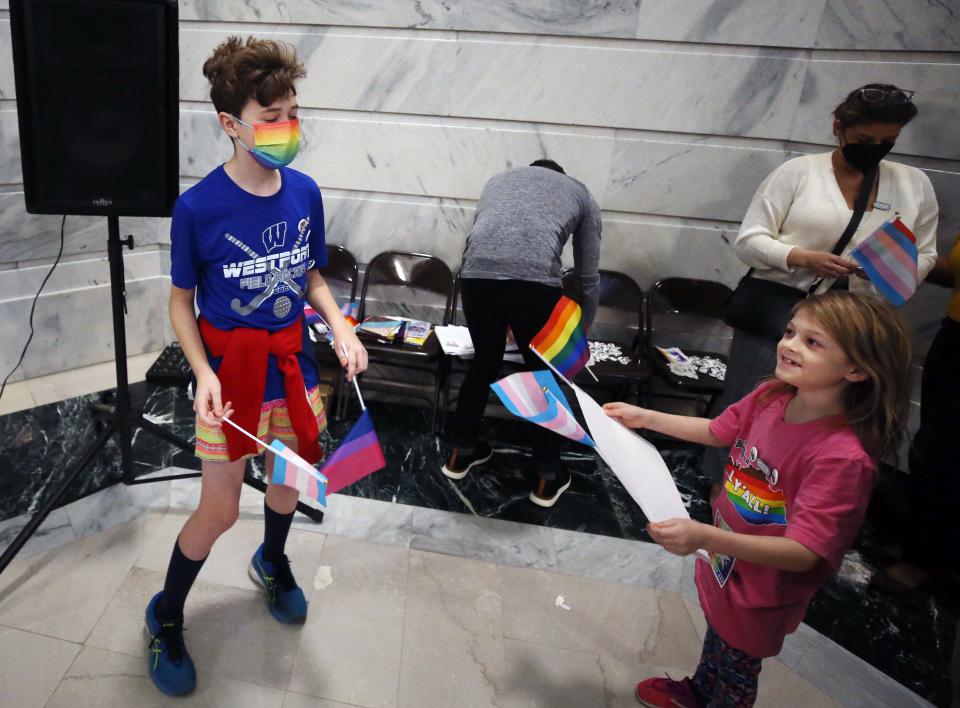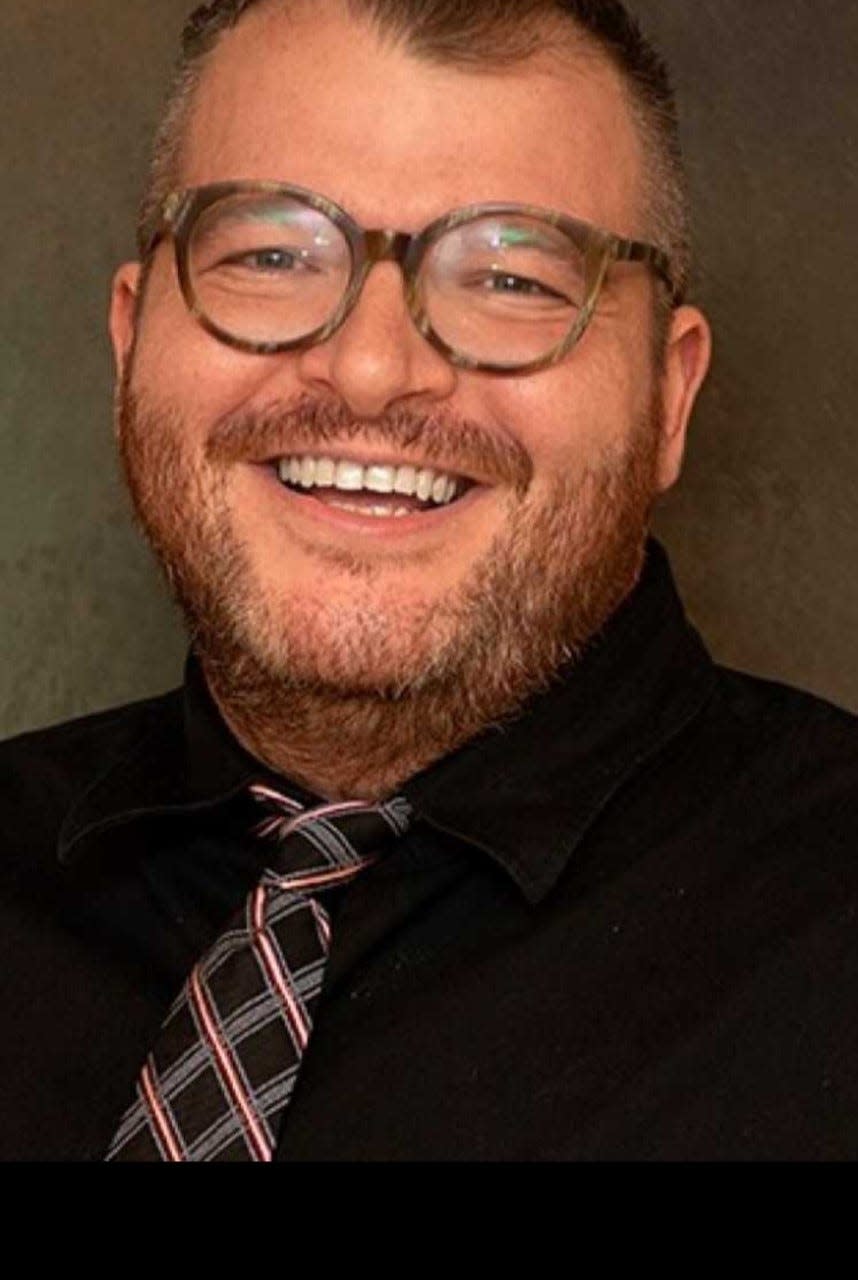LGBTQ rights keep progressing in the workplace so why not in schools?
In 2001, I was saving working at a McDonald’s in my rural Kentucky hometown. A customer came in. I greeted him.
He said, “I don’t want anything if you touch the food. I don’t want AIDS.” I was young and scared. I called the manager.
She minced no words: “Sir, none of my employees will serve you. Leave.” He did.
Later, I worked at Papa John’s. Same town. An older coworker said to me, “I feel sad for your dad. It must be embarrassing to have a fag for a son.”
He was immediately fired and banned from returning. I didn’t have to advocate: my manager, Mike, believed in my dignity.
Twenty years later I remember this support and cannot fathom it as a teacher. Not in my best dreams can I imagine rural LGBTQ teachers afforded support, let alone dignity, because national rhetoric has politicized K-12.

More:JCPS panel votes to keep 'Gender Queer' on library shelves
Last year, a woman in my town levied heinous Marjorie Taylor Greene-style accusations against me, another colleague, and our students for the simple fact that LGBTQ adults lead a school club including LGBTQ students. She posted pictures of us online. She posted pictures of my former students at their places of work. She called our club a “grooming ground” and suggested that older students were “grooming” younger students. The posts were widely shared.
Her accusations are not only false, but were shared without her attending a single meeting or speaking to any club sponsor. The club advocates for mental health, inclusion, anti-bullying and community clean-up projects.
I worried for my students.
I wrote to my administration for help. Multiple parents did the same.
One father simply pleaded, “Please do something.”
The superintendent’s response was the following: “While I understand there is a lot of misinformation in these posts, the ability to directly address every social media post disagreeing with something associated with our schools and district is not feasible.”
No one spoke to the kids.
No one reassured the kids.
More:'Hands off our libraries.' Why JCPS 'Gender Queer' book challenges do more harm than good
There’s a lot to unpack in his response, namely whether homophobic lies against teachers and students constitute more urgency than a typical Facebook rant against masks or test schedules. (They respond to those, by the way).
In other words, do teachers or students who identify as LGBTQ matter as human beings? Is their safety important?
While I can’t answer why my former school didn’t intervene, I can make two generalized statements about the place of LGBTQ teachers:
It is not politically expedient to defend LGBTQ teachers.
It is often politically expedient to throw them to the wolves.
Conservative politics is on fire with anti-LGBTQ sentiment, with over 300 anti-LGBTQ bills introduced in the US during the last legislative assembly, the vast majority of which focused on schools. Key US Republicans make contemptible charges against LGBTQ people and allies for simply existing in schools.
Still, the HRC reports more LGBTQ rights progress than ever before was made in the workplace these last few years. Companies protect, advocate for and include LGBTQ employees.
But rural schools are running in the opposite direction.
School boards are chosen democratically and given wide autonomy. Boards choose superintendents, who choose other leadership.
Few safeguards ensure that best practices are followed; the assumption is usually, and rightfully, that districts make the best decisions for their communities.
This assumption explains why school boards are the new epicenter of the culture war: people who feel increasingly powerless are most powerful at the local level.
Schools obviously want to protect their image. Anyone can go to their local school’s Facebook page to see them controlling the narrative on masking, curriculum, and, in progressive places, their moves towards inclusion of LGBTQ and BIPOC people.
Rural places, however, are resistant to advertise anything at all on these last subjects because conservative America is increasingly hostile to Black, brown, immigrant, gay, lesbian and trans voices. Politicians embrace the hatred – US Senator-elect JD Vance even praises hatred as a conservative value.
What can rural school districts do when swaths of voters hate LGBTQ teachers, see their existence as suspect, and rally against them?
If their goal is to keep their jobs, then supporting those teachers might run contrary to the goal.
If their goal is the sort of justice that they claim to teach students, then the answer precedes the question: we don’t give in to bullies, to lies, to hatred.
Protecting LGBTQ teachers – and by extension, students – requires bravery, strength, sacrifice, and, most importantly, preemptive vocal support of LGBTQ educators and students.
I implore any LGBTQ educator, especially in rural places, who hears administrators say they are LGBTQ-friendly, not to assume that friendliness is the same as support, and, if the school claims to support LGBTQ-teachers, to say, “Show me.”
If they can’t point to something, then assume you will not be supported.

Willie Carver is the author of Gay Poems for Red States and a board member of the Kentucky Youth Law Project. He is the 2022 Kentucky Teacher of the Year.
This article originally appeared on Louisville Courier Journal: LGBTQ rights keep progressing in the workplace so why not in schools?

